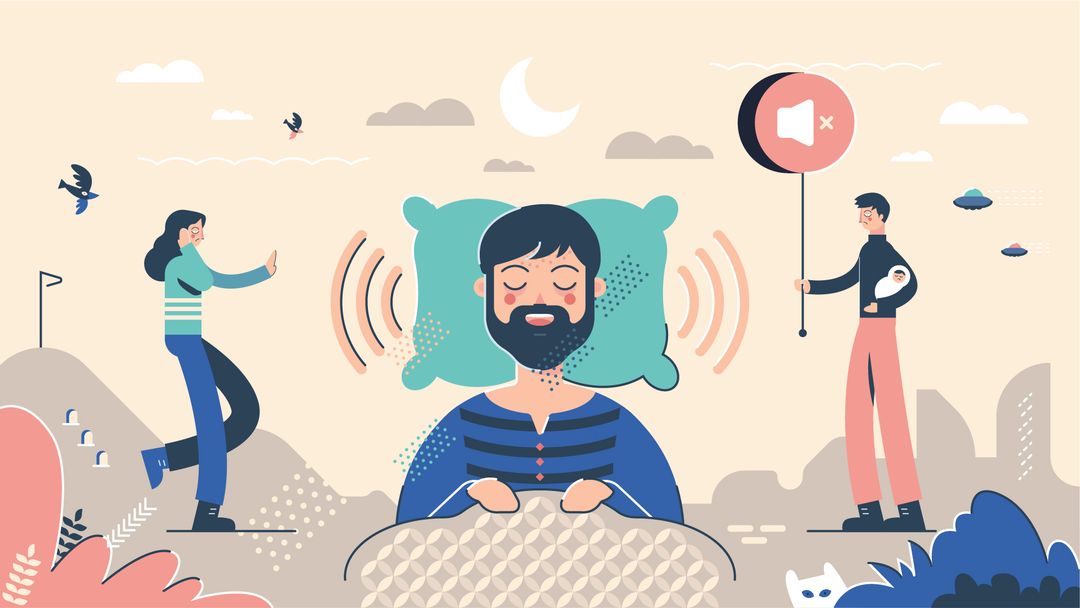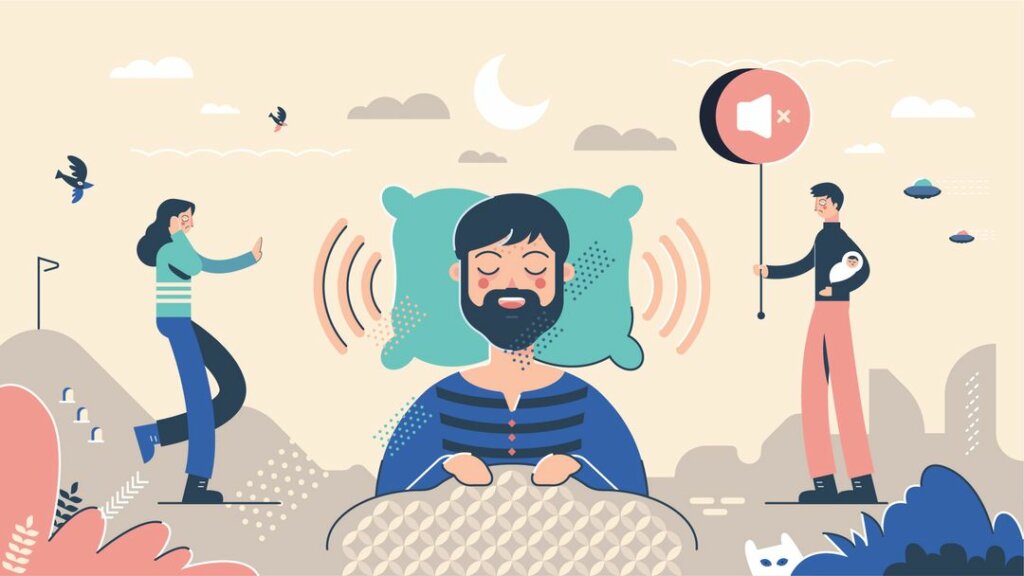It’s not uncommon to hear people complaining about their partner’s snoring. However, there is quite a difference between mild snoring when someone is tired (and have had a bit to drink), and someone sounding like a dying bear, gasping for air when they sleep and snore.
The latter is often a symptom of sleep apnea, a sleep disorder characterized by brief, repeated interruptions in breathing during sleep. There are different types of sleep apnea, but the most common one is obstructive sleep apnea (OSA). This disorder affects both children and adults, but for this 101, we will mainly refer to obstructive sleep apnea as experienced by adults.
Can’t sleep and don’t know why? Check out our Complete Guide to Sleep Disorders with symptoms, causes, and treatments on over twenty types of sleep disorders.
Quick Facts – Sleep Apnea
Frequency: Around 20% of the global adult population*
Risk factors: Excess weight, obesity, alcohol drinking, smoking, menopause, genetics and family history
Nature: Physical
Treatment: Continuous positive airway pressure (CPAP), weight reduction, surgical procedures (e.g. septoplasty, tonsillectomy), lifestyle changes, oral appliances or devices
Symptoms
Snoring is one of the telltale signs of sleep apnea. However, it’s important to note that not everyone who snores may have sleep apnea, and vice versa. Do you always wake up with a dry mouth or sore throat? Or maybe there are times when you just abruptly wake up in the middle of the night with shortness of breath?
Here are some of the most common signs and symptoms of obstructive sleep apnea.
- Frequent, loud snoring
- Depressive and irritable moods
- Excessive daytime sleepiness (EDS) or drowsiness
- Decreased libido
- Feelings of tiredness and fatigue even after eight or more hours of sleep
- Morning headaches
- Abruptly waking up and choking or gasping for air
Causes – Sleep Apnea
While obesity is often cited as the most common cause of sleep apnea in studies, there have yet to be across-the-board conclusive studies that pinpoint just one or two definite causes. Just like other sleep disorders, there are several things related to one’s biology, lifestyle, and genetics that can cause sleep apnea.
- Excess weight or obesity – Overweight and obese people tend to have increased fat deposits around the neck, and more soft tissue in the throat and mouth which can block the airway.
- Large tongue or tonsils – These can narrow the upper airway, leading to interrupted or difficult breathing during sleep.
- Genetics – Genes and genetic syndromes can affect the facial bone structure and position of the tongue.
- Nasal conditions – Allergies and conditions (e.g. deviated septum) can lead to congestion in the upper airways.
Treatment – Sleep Apnea
Millions around the world might feel resigned to spend their nights snoring and waking up in the middle of the night or in the morning with a dry mouth, but there actually are science-backed treatments available that are proven to be effective for treating and/or managing sleep apnea. Below are some of them.
- CPAP mask or machine – Widely considered by the medical community as the first-line treatment and therapy for obstructive sleep apnea, CPAP devices ensure that you have stable air pressure when you inhale and exhale during sleep.
- Oral devices (i.e. custom-fitted mouthpiece or night guard) – These are generally designed to reposition the tongue and slightly move the lower jaw down and forward to help open up the airway while you sleep.
- Weight loss – Weight reduction of as low as 10% can have a significant effect on decreasing the symptoms of sleep apnea.
- Lifestyle changes – Avoid drinking alcohol, quit smoking, and maintain a healthy lifestyle by exercising regularly and eating healthy food.
- Surgery – Surgical procedures like tonsillectomy (tonsil removal) and maxillary or mandibular advancement (surgically moving the upper and/or lower jaw forward to open the airway) can help treat or manage obstructive sleep apnea.
How You Will Overcome Sleep Apnea
Unfortunately, sleep apnea isn’t one of those sleep disorders that go away as soon as you take the right pill. The good news is, there are plenty of accessible and highly effective treatment options out there for severe sleep apnea, such as a CPAP machine. If you have mild sleep apnea, studies show using a mouthpiece and maybe even losing a few pounds can significantly lessen your symptoms too. If you’re lucky and the sleep apnea you have is very mild, simply lying on your side will help you breathe and sleep better at night.
All that said, consulting a healthcare professional is still your best bet to find the treatment that works best for you so you can finally enjoy deep, restful sleep.
Did you know?
This article is part of our Complete Guide to Sleep Disorders – A resource that will help you get your quality sleep back. Click here to learn more about sleep disorders, their causes, symptoms and how to overcome them.



